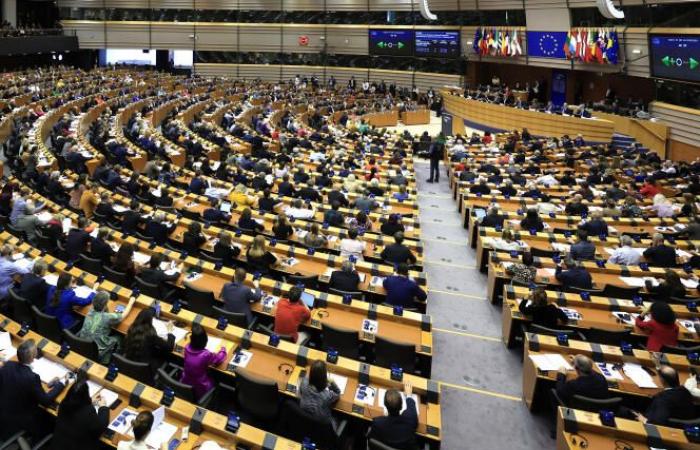LETTER FROM BRUSSELS
As soon as the results of the European elections were known, on June 9, the big maneuvers began in the European Parliament. After the vote, it is time for negotiations, behind the scenes, while each of the political groups, which structure the Strasbourg hemicycle, counts its troops and seeks to increase them as much as possible. A sort of second round, the outcome of which could be decisive for the life of Brussels institutions.
Read also | Article reserved for our subscribers European elections: the far right in force in the founding countries of the EU
Add to your selections
As a reminder, to date, the different political groups of the twenty-seven member states are divided into seven groups, which bring together the vast majority of the 720 newly elected MEPs: the European right of the European People’s Party (EPP), the social democrats ( S&D), the liberals of Renew, the Greens, the nationalist and populist right of the European Conservatives and Reformists (ECR) and Identity and Democracy (ID), the radical left (The Left).
Alongside them, we find well-established but unaffiliated parties – such as the Hungarian Fidesz of Viktor Orban, forced to leave the EPP in 2021, or the German party Alternative für Deutschland (AfD), excluded from ID a few weeks ago – as well as still embryonic political groups or isolated elected representatives, who were until now not represented in the European Parliament.
Each recruit reports
The existing groups are on the hunt: they are seeking to poach from their competitors but also to draw on these reserves of around a hundred MEPs to gain a few more seats. The issue is political, of course. It is also financial, while the means of a group are proportional to its size. In this context, each recruit pays off.
The matter is not always simple. Thus Fidesz has stated its intention to join ECR, but certain delegations of the group refuse to cohabit with the friends of Viktor Orban, whom they consider radioactive, and threaten to seek accommodation elsewhere. This is the case of the ODS party of Czech Prime Minister Petr Fiala, which the EPP would like to recover, of the Sweden Democrats who support the Swedish government, or even of the Flemish nationalists of the N-VA, who have started informal discussions with Renew.
On the ID side, too, the balances are fragile. While the National Rally (RN) is the first delegation, Marine Le Pen advocates an alliance with ECR, but, for the moment, she has not been heard. In Brussels, on June 12, she also met two of her allies within ID – Geert Wilders, head of the Dutch PVV, and Matteo Salvini of the Italian League – to discuss the future.
You have 57.24% of this article left to read. The rest is reserved for subscribers.







